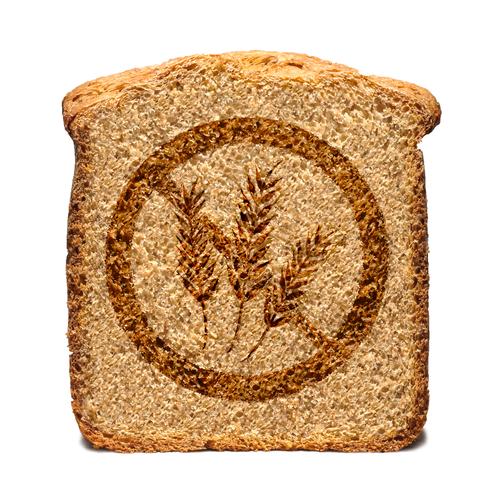Gluten-free is one of the latest food fads to take America by storm — but does everyone who espouses a gluten-free diet really need one? Certainly, someone with celiac disease must have a gluten-free diet; but there are also other reasons a person might legitimately avoid gluten, such a a non-celiac gluten sensitivity (NCGS) or an allergy. How does one know? A recent study in the journal Clinical Gastroenterology and Hepatology sought to examine how reliably such determinations are made.
Dr. Javier Molina-Infante from the Hospital Universitario San Pedro de Alcantara, Caceres, Spain and Dr. Antonio Carroccio from the University of Palermo reviewed data from 10 previous reports on double-blind, placebo-controlled, gluten-challenge studies — the recommended way to diagnose NCGS. In these studies, a person would be assigned to eat either a gluten-containing food or capsule or a placebo for a specified period, then would be switched to the other food source, and the occurrence of GI symptoms would be assessed on each diet (neither the patients nor the physicians would know who was eating which diet). Only 4 of the studies reported quantitative data on the outcomes.
These studies included 231 NCGS patients in all, and varied in the size of the gluten challenges as well as in the length of the exposure to either the gluten or placebo diet. All of the patients with suspected NCGS had been shown to be non-celiac sufferers.
Overall, only 16 percent of supposed NCGS individuals showed GI effects when consuming gluten, but not placebo. Forty percent exhibited symptoms when they ate placebo, but not when they ate gluten (a nocebo effect1). And 57 percent showed no symptoms whether they ate gluten or placebo.
Thus, these authors concluded that "more than 80% of nonceliac patients, labeled as suffering from NCGS after a favorable response to a gluten-free diet, cannot reach a formal diagnosis of NCGS after a double-blind, placebo- controlled gluten challenge." These results suggest that the GI symptoms reported by many may well have nothing to do with gluten at all, and the authors further suggested that the expectation that individuals have about gluten may affect their responses to what they believe they are eating. Finally, the variability of the procedures in the different studies should be addressed and the dosage of gluten and duration of the challenge should be standardized, based on validation studies.
What this means for the individual who suffers from undiagnosed GI symptoms who does not have celiac disease is that it's likely that gluten is not the culprit, and that further research will be needed to clarify that situation.

Credit: https://www.shutterstock.com/




